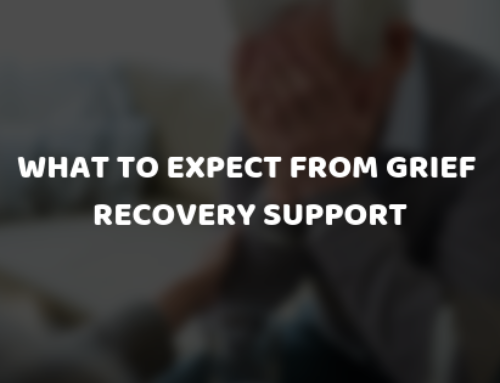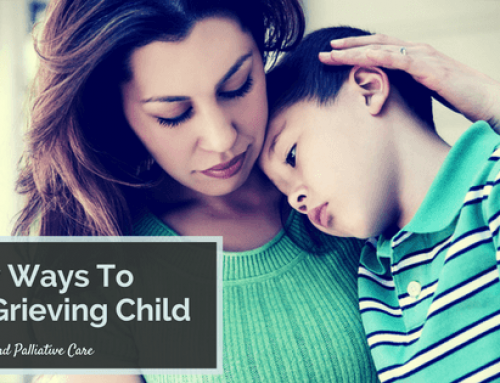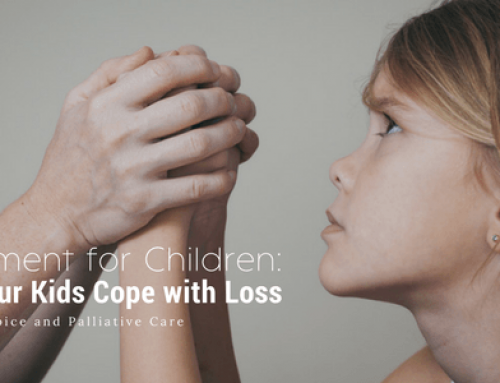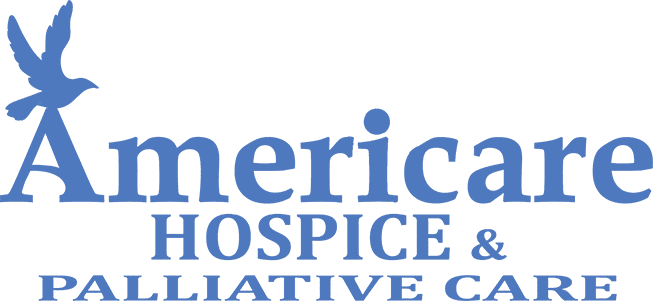Examining the Process of Grief Recovery
The Grief Recovery Method Guide for the Loss of a Loved One
Recovering from grief, no matter the reason, is oftentimes a rollercoaster ride. Some days will feel more painful than others, and at any moment your grief could be triggered by the simplest thing. And grief can be especially strong when you or a loved one is receiving hospice support. Having a better understanding of grief and grief recovery can make a big difference in having patience with yourself while working through it.
What is Involved in the Process of Grief Recovery?
You have likely heard a lot about different characteristics or even ‘stages’ of grief. And many people also frequently use cliches such as “time heals all wounds.” Yet the people saying such things likely have very little understanding about grief. As a society, we rarely address grief. Companies generally don’t acknowledge the need for grieving (typical corporate ‘bereavement leave’ averages 3 days…before a funeral often has even taken place). And grief is unique for every person. Just because you and I both have lost jobs or our mothers, we do not have the exact same experience of grieving those losses. I couldn’t honestly say to you, “I know how you feel.” Because I don’t. Yet this is the most common and most unhelpful thing one can say to another who is grieving. Statements such as these and other adages such as ‘it just will take time’ expose the average person’s attempt to INTELLECTUALLY address grief or offer some general solution to it. The truth, however, is that grief is EMOTIONAL. It involves a broken heart…whether that heart is broken due to someone’s death, the loss of a home, a job, a friend, someone’s trust, etc. Grief cannot be ‘fixed.’ It must be worked through.

It is important to note that especially when grieving someone’s death, perhaps someone who was receiving hospice support before their death, that anticipatory grieving may also be happening. This is when we are grieving someone as they approach death, such as a loved one with alzheimer’s disease and we already have ‘lost’ the mom we knew before her mind failed her. Certain action steps are needed to help someone work through the varied emotions, challenges, and new journeys we are faced with after suffering a great loss. You must personally make the choice to address the grief and want to heal. No one’s best intentions can make those steps for you. And for some, they are not ready to do that for a while. Others, right away. Again, grief is unique and individual as are the ways each person addresses it.
Consider this example: suppose you break your leg. Rather than see a doctor and receive proper treatment, you muster up strength and decide that time will heal the issue. Fast forward several weeks, months, or years down the road, and you are still dealing with a stiff, misshapen leg, without the ability to function without some sort of debilitating pain. Dealing with this daily pain will also take a heavy toll on your mental and emotional state, ultimately affecting your every activity and relationship.
Instead of ignoring the injury and blindly forcing yourself to just trust time to heal it, the proper course of action would have been to at some point address the injury head-on, see a doctor, and receive proper treatment. Though the prospect of a cast, possible surgery, physical therapy, and rehabilitation might seem daunting, your leg would ultimately be stronger and healthier. Taking specific actions to address an injury accelerates the healing process. The same could be said about addressing one’s grief.
Seek Help
Grieving the death of a loved one involves actual heartbreak. Whether the person who died was a dear loved one or an estranged family member, loss has occurred and a hurting heart is the result. Finding a helpful, well facilitated grief program or specialist can make a real difference in how you work through that loss. Americare has grief recovery specialists who are specially trained to offer that guidance and help, specifically in the Grief Recovery Method®. But again, it is up to each griever to make a personal choice between completely avoiding the pain and never moving forward or working through their grief to a healthier and stronger tomorrow. But the help is there. And if Americare’s grief recovery specialists or their grief programs are not the right fit for someone, they can and will help find a good fit. As grieving is unique, there are times when a different type of program or assistance is warranted.
Americare Hospice
If you are struggling with the death of a loved one and need help working through the grief process, consider Americare Hospice’s grief recovery specialists. They are kind and patient and have many years of experience helping people in their grief. Our team has a deep commitment to providing support for your loved one, you, and your family, and strive to help you cope with your grief in healthy ways. To learn more about our services and how we can serve you, contact Americare Hospice at (480) 726-7773 today.
Published By:
1212 N. Spencer St., Suite #2
Mesa, Arizona 85203
Office: (480) 726-7773
Fax: (480) 726-7790
Email: info@americarehospice.org
Website: https://americarehospice.org/





